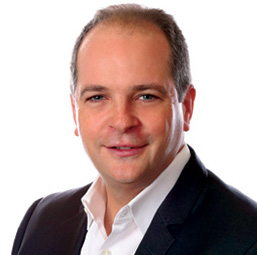ResMed on mask recall, big tech and demand-gen
By Liz Beaulieu, Editor
Updated 10:10 AM CST, Fri January 26, 2024
 SAN DIEGO – ResMed CEO Mick Farrell said a recall of its CPAP masks with magnets did not impact the company’s sales for the second quarter ended Dec. 31, 2023.
SAN DIEGO – ResMed CEO Mick Farrell said a recall of its CPAP masks with magnets did not impact the company’s sales for the second quarter ended Dec. 31, 2023.
ResMed in November issued an urgent field safety notice to patients detailing possible interference with its AirFit and AirTouch masks and certain medical devices; the company in December then announced a voluntary global field action to update its guides. The U.S. Food and Drug Administration in January classified the recall as its most serious type.
“I got to tell you, there was no product removed from the market,” said Farrell during a conference call to discuss the company’s financial results. “This was about having our plastic clips as an option, which we scaled up manufacturing and have them as an option. So, when a patient is set up, if they're a very, very small minority of people who have an implanted pacemaker or other metal device in their upper chest or craniofacial area, then those patients are offered an upgrade to the plastic clips. The masks with magnets are doing so well and for 99% of people, they're great. For that 1%, the HMEs are very comfortable now to ask those questions (about contraindications).”
Globally, sales of masks and accessories grew 9% year over year; and in the United States, Canada and Latin America, specifically, they grew 10%.
Big tech and big pharma
ResMed plans to leverage the focus on sleep wellness by big tech companies like Apple, Google and Samsung to increase patient flow for CPAP therapy. Farrell pointed out that the latest generation of the Apple Watch, for example, has sleep wellness tracking built in and the company plans to enhance that capability with sleep quality assessment.
“We love this attention on the field of sleep wellness and many of these technologies will help each person find out if they have issues with sleep architecture, issues with breathing during sleep, or issues maintaining high quality sleep,” he said. “This could be one of the biggest waves of people taking control of their own pathway for discovering they have sleep apnea or they have insomnia (or) maybe they have both.”
ResMed also plans to leverage the focus on GLP-1s by big pharma. In a previous call, Farrell discussed the company’s plans to track a cohort of patients on both GLP-1s and CPAP therapy and now it has “real-word data and real-word scale.”
“Our analysis of over 529,000 patients with GLP-1 prescriptions shows that not only is there not a reduction in the propensity to start positive airway pressure therapy, it is the exact opposite,” he said. “For patients who have been prescribed a GLP-1, there is an increase of 10% of the absolute percentage of patients that commence positive airway pressure therapy. So, as an example, if you take a baseline of 75% of patients that commence PAP therapy after their prescription, on average, in a certain group, that would become 85% of those same patients who were on a GLP-1 that would commence therapy.”
Digital concierge
Additionally, ResMed will increase patient flow for CPAP therapy through demand-generation initiatives, a strategic focus for the company in 2024, Farrell said. The company recently launched an in-market trial of a company-developed, generative AI product in Asia Pacific that serves as a digital concierge to help “sleep-concerned consumers” explore their sleep wellness and navigate potential treatment options.
“This generative AI tool helps the person identify, engage and enroll on their personal journey to better sleep and better breathing,” Farrell said. “Our goal is to develop and scale this digital sleep concierge so that all those seeking better sleep and better breathing can find their personal pathway for the best outcome, the best treatment and the best long-term care.”
Comments